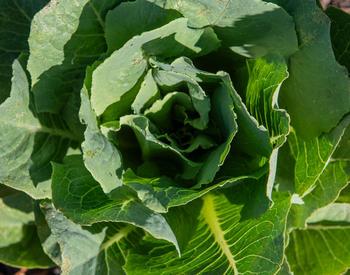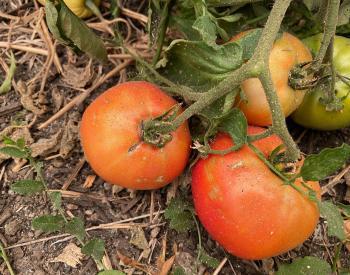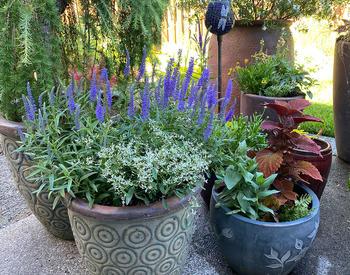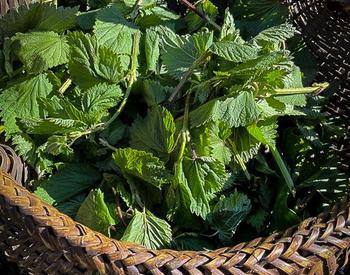I am growing a pumpkin plant that is a volunteer from my daughter, who grew delicious pumpkin-pie pumpkins last year. I have recently read that some volunteer plants in the squash family might produce poisonous fruit (pumpkins/squash) – "toxic squash syndrome?" Do I need to worry about eating these pumpkins?
You are right to be cautious with a fruit from a cucurbit type volunteer. Vine crops including cucumbers and zucchini produce chemicals called cucurbitacins, which give a bitter taste to the fruit. In cultivated cucumbers and zucchini these chemicals are normally in concentrations that we can't taste them. Wild cucurbits contain much higher levels of cucurbitacins, making them inedible to mammals.
Bitterness in squash
Mild bitterness in zucchinis or cucumbers is not uncommon and can be caused by environmental stress like high temperatures, drought, wide swings in temperatures, or uneven watering practices that tend to concentrate cucurbitacins in the fruit. This mild bitterness in garden squash or cucumbers may not be so severe as to prevent gardeners from using the fruit. With a mild bitterness due to environmental conditions you would expect all plants in the garden to show the same problem to some extent since they all faced the same environmental stresses. With improved growing conditions the problem should diminish.
Sometimes gardeners pick zucchini from their gardens that are extremely bitter. If this happens do NOT eat the zucchini. A couple of grams of this extremely bitter squash can cause diarrhea and stomach cramps that can last for up to three days.
Cross-pollination of squash
Since flowers are insect-pollinated, it is possible in rare cases for a seed you receive in a seed packet to have been cross-pollinated with wild cucurbits, resulting in high levels of cucurbitacins and a very bitter taste. When the cause of the bitterness is bred into the plant like this, the bitterness does not improve with better-growing conditions.
Plants within the same species can cross-pollinate. Cross-pollination can be seen in the (Cucurbita pepo) squashes and pumpkins. Summer squash, pumpkins, gourds, and some types of winter squash belong to the same plant species Cucurbita pepo. All species members may cross with one another. Some cucumber species plants may have been pollinated by bees that have visited wild cucumber varieties which can result in a cross that contains high concentrations of the chemical that makes them very bitter. This type of cross will not show until the seed of that cross is sowed the following year or possibly in a volunteer coming up in the garden or compost pile.
Symptoms of consuming volunteer squash
The bottom line is if you have a different-looking type of fruit in your garden than expected do not eat it if it is extremely bitter. Spit out the first bite. A study published in Clinical Toxicology in 2018 published a study from France that found 353 cases of reported adverse effects reported from eating bitter squashes. Diarrhea, vomiting, and abdominal pain were the most common symptoms. No deaths were recorded.
If your volunteer pumpkin looks the same as those raised by your daughter last year and the pumpkin does not taste bitter from small sample, then it will probably be safe to eat.





















